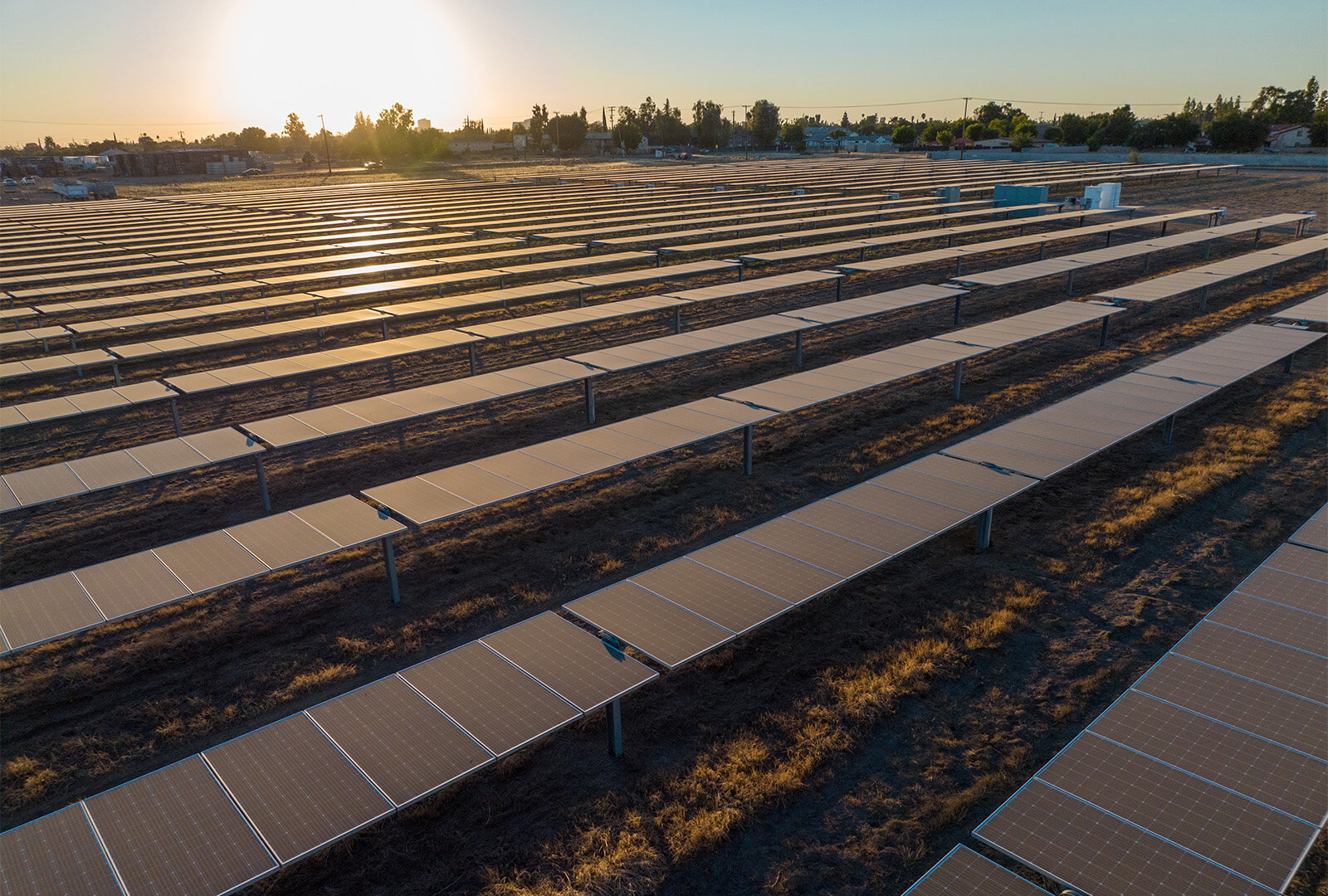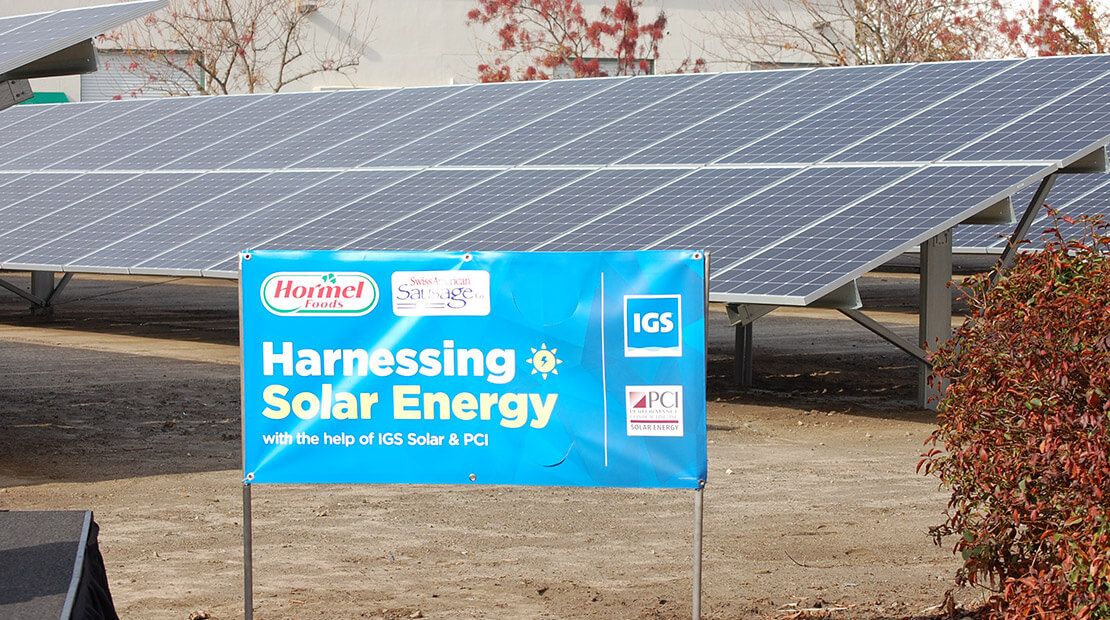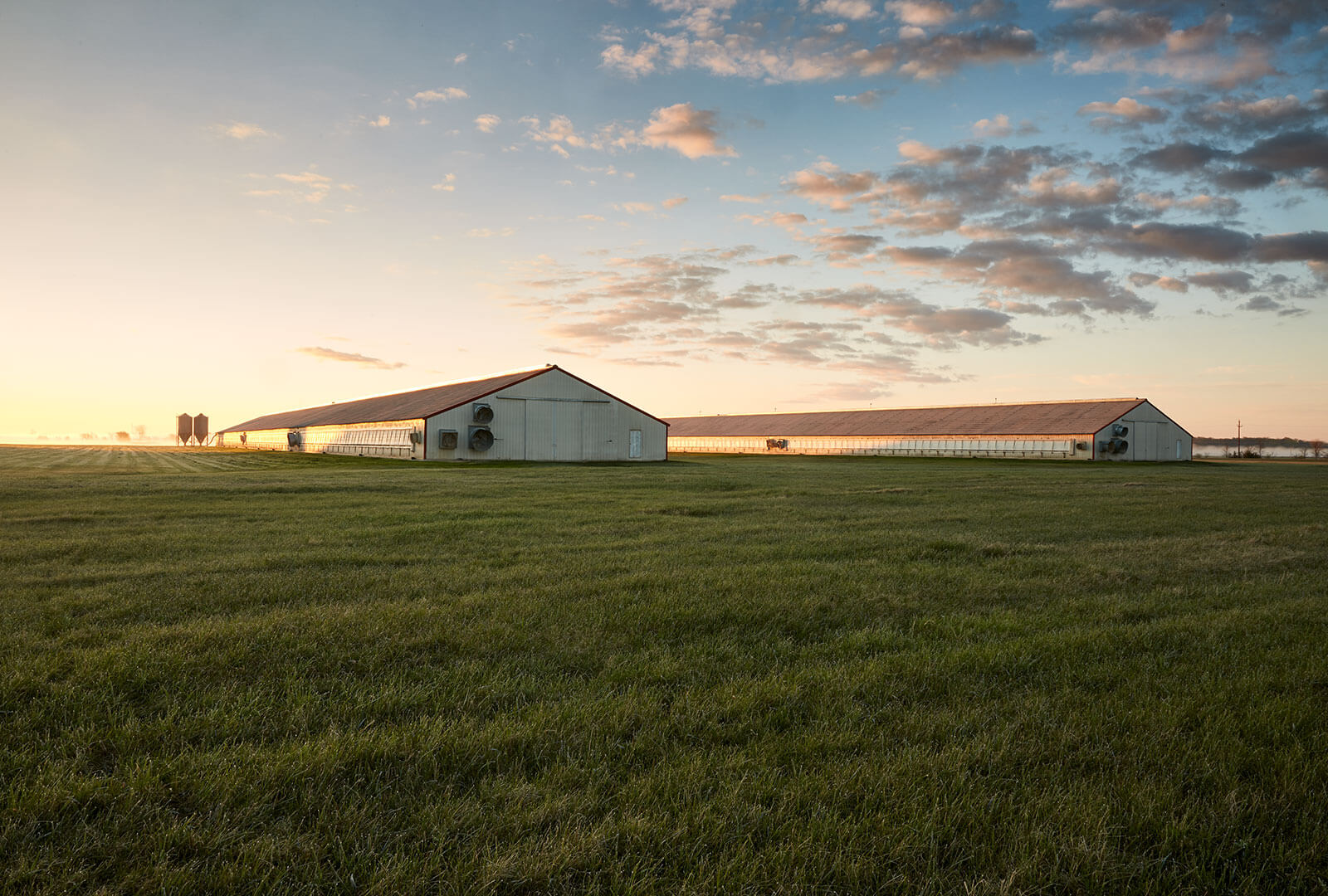The Hormel Foods 20 By 30 Challenge is a set of ambitious goals in the areas of animal welfare, waste reduction, renewable energy, packaging innovation, community support and food security, among others. While the company has been championing carbon reduction and renewable energy goals for years, these new commitments require collaboration and innovation to identify efficiencies and solutions.
“There’s no doubt about it, the bar is raised in every sense,” says Tom Raymond, director of environmental sustainability at Hormel Foods.
GHG Emission Scopes
The Greenhouse Gas Protocol categorizes emissions into three scopes:
- Scope 1 emissions are direct emissions from company-owned or company-controlled resources, such as manufacturing and live production facilities.
- Scope 2 emissions are indirect emissions from electricity purchased from power facilities.
- Scope 3 emissions are indirect emissions from a wide variety of sources including suppliers, employee travel and customer use of products. For many companies, Scope 3 emissions make up the bulk of their carbon footprint and are the most challenging to address.
“There are a lot of roads on this part of the journey that are not clearly paved out and marked,” Raymond says. “We’re going to have to be very creative about how we guide the organization through this.” Usually fierce competitors across the food and protein industry have joined together to share information on best practices as they fight climate change.
The company was recently recognized for its clean-energy initiatives by the U.S. Environmental Protection Agency as a recipient of the 2023 Green Power Leadership Award as well as the market development award from CRS, the Center for Resource Solutions, for building and growing the voluntary market for green power. In 2023, Hormel Foods ranked No. 26 on EPA’s National Top 100 List of the largest green power users from the Green Power Partnership (GPP) for the first time, as well as No. 20 on EPA’s list of Green Power Partners that are part of the Fortune 500®.
As we face the daunting challenges of feeding a growing global population while protecting the planet, we believe advancing regenerative agriculture practices is a smart and responsible choice.
Mark Coffey, Group Vice President of Supply Chain
Sustainable Packaging Solutions
Packaging is another focus. In 2022 alone, Hormel Foods reduced packaging by more than 1.5 million pounds by using less plastic, lighter cardboard and by incorporating recycled materials. This improvement builds on the company’s previous goal to reduce product packaging by 25 million pounds by 2020, which it surpassed in 2019. The company is also making more sustainability efforts through customer outreach. New product labels contain prominent information on how to properly recycle containers, under the industry initiative How2Recycle.
The Hormel Foods commitment to climate stewardship is a multi-faceted approach, from investing in renewables to reducing packaging material and scaling regenerative agriculture, among many other initiatives. These efforts all converge toward a singular objective: to decouple the company’s growth from environmental impact and build a resilient and sustainable legacy for generations to come.



